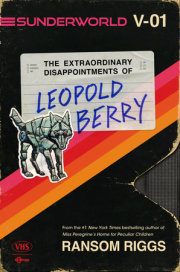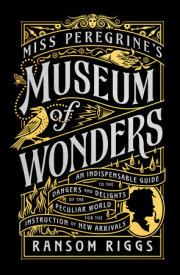The Splendid Cannibals
The peculiars in the village of Swampmuck lived very modestly. They were farmers, and though they didn’t own fancy things and lived in flimsy houses made of reeds, they were healthy and joyful and wanted for little. Food grew bountifully in their gardens, clean water ran in the streams, and even their humble homes seemed like luxuries because the weather in Swampmuck was so fair, and the villagers were so devoted to their work that many, after a long day of mucking, would simply lie down and sleep in their swamps.
Harvest was their favorite time of year. Working round the clock, they gathered the best weeds that had grown in the swamp that season, bundled them onto donkey carts, and drove their bounty to the market town of Chipping Whippet, a five days’ ride, to sell what they could. It was difficult work. The swampweed was rough and tore their hands. The donkeys were ill-tempered and liked to bite. The road to market was pitted with holes and plagued by thieves. There were often grievous accidents, such as when Farmer Pullman, in a fit of overzealous harvesting, accidentally scythed off his neighbor’s leg. The neighbor, Farmer Hayworth, was understandably upset, but the villagers were such agreeable people that all was soon forgiven. The money they earned at market was paltry but enough to buy necessities and some rations of goat-rump besides, and with that rare treat as their centerpiece they threw a raucous festival that went on for days.
That very year, just after the festival had ended and the villagers were about to return to their toil in the swamps, three visitors arrived. Swampmuck rarely had visitors of any kind, as it was not the sort of place people wanted to visit, and it had certainly never had visitors like these: two men and a lady dressed head to toe in lush brocaded silk, riding on the backs of three fine Arabian horses. But though the visitors were obviously rich, they looked emaciated and swayed weakly in their bejeweled saddles.
The villagers gathered around them curiously, marveling at their beautiful clothes and horses.
“Don’t get too close!” Farmer Sally warned. “They look as if they might be sick.”
“We’re on a journey to the coast of Meek,” explained one of the visitors, a man who seemed to be the only one strong enough to speak. “We were accosted by bandits some weeks ago, and, though we were able to outrun them, we got badly lost. We’ve been turning circles ever since, looking for the old Roman Road.”
“You’re nowhere near the Roman Road,” said Farmer Sally.
“Or the coast of Meek,” said Farmer Pullman.
“How far is it?” the visitor asked.
“Six days’ ride,” answered Farmer Sally.
“We’ll never make it,” the man said darkly.
At that, the silk-robed lady slumped in her saddle and fell to the ground.
The villagers, moved to compassion despite their concerns about disease, brought the fallen lady and her companions into the nearest house. They were given water and made comfortable in beds of straw, and a dozen villagers crowded around them offering help.
“Give them space!” said Farmer Pullman. “They’re exhausted; they need rest!”
“No, they need a doctor!” said Farmer Sally.
“We aren’t sick,” the man said. “We’re hungry. Our supplies ran out over a week ago, and we haven’t had a bite to eat since then.”
Farmer Sally wondered why such wealthy people hadn’t simply bought food from fellow travelers on the road, but she was too polite to ask. Instead, she ordered some village boys to run and fetch bowls of swampweed soup and millet bread and what little goat-rump was left over from the festival—but when it was laid before the visitors, they turned the food away.
“I don’t mean to be rude,” said the man, “but we can’t eat this.”
“I know it’s a humble spread,” said Farmer Sally, “and you’re probably used to feasts fit for kings, but it’s all we have.”
“It isn’t that,” the man said. “Grains, vegetables, animal meat—our bodies simply can’t process them. And if we force ourselves to eat, it will only make us weaker.”
The villagers were confused. “If you can’t eat grains, vegetables, or animals,” asked Farmer Pullman, “then what can you eat?”
“People,” the man replied.
Everyone in the small house took a step back from the visitors.
“You mean to tell us you’re . . . cannibals?” said Farmer Hayworth.
“By nature, not by choice,” the man replied. “But, yes.”
He went on to reassure the shocked villagers that they were civilized cannibals and never killed innocent people. They, and others like them, had worked out an arrangement with the king by which they agreed never to kidnap and eat people against their will, and in turn they were allowed to purchase, at terrific expense, the severed limbs of accident victims and the bodies of hanged criminals. This comprised the entirety of their diet. They were now on their way to the coast of Meek because it was the place in Britain which boasted both the highest rate of accidents and the most deaths by hanging, and so food was relatively abundant—if not exactly plentiful.
Even though cannibals in those days were wealthy, they nearly always went hungry; firmly law-abiding, they were doomed to live lives of perpetual undernourishment, forever tormented by an appetite they could rarely satisfy. And it seemed that the cannibals who had arrived in Swampmuck, already starving and many days from Meek, were now doomed to die.
Having learned all this, the people of any other village, peculiar or otherwise, probably would have shrugged their shoulders and let the cannibals starve. But the Swampmuckians were compassionate almost to a fault, and so no one was surprised when Farmer Hayworth took a step forward, hobbling on crutches, and said, “It just so happens that I lost my leg in an accident a few days ago. I tossed it into the swamp, but I’m sure I could find it again, if the eels haven’t eaten it yet.”
Copyright © 2016 by Ransom Riggs; illustrated by Andrew Davidson. All rights reserved. No part of this excerpt may be reproduced or reprinted without permission in writing from the publisher.














